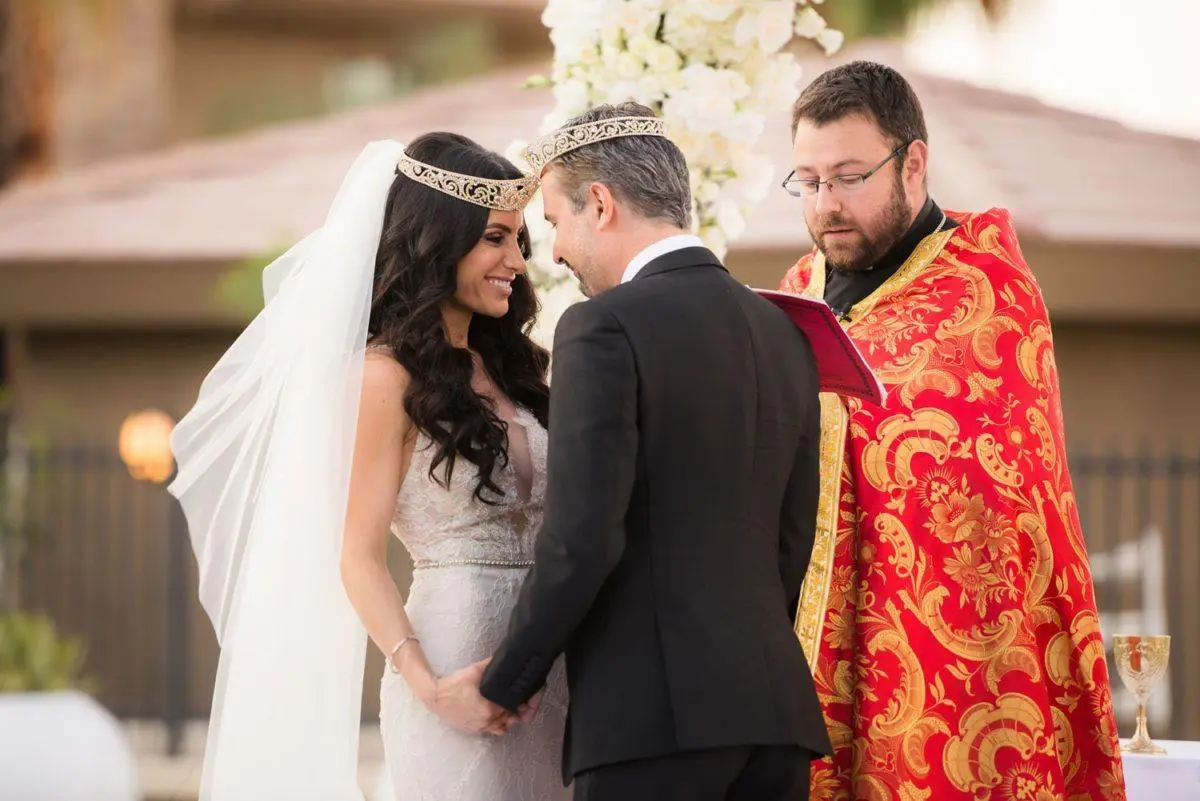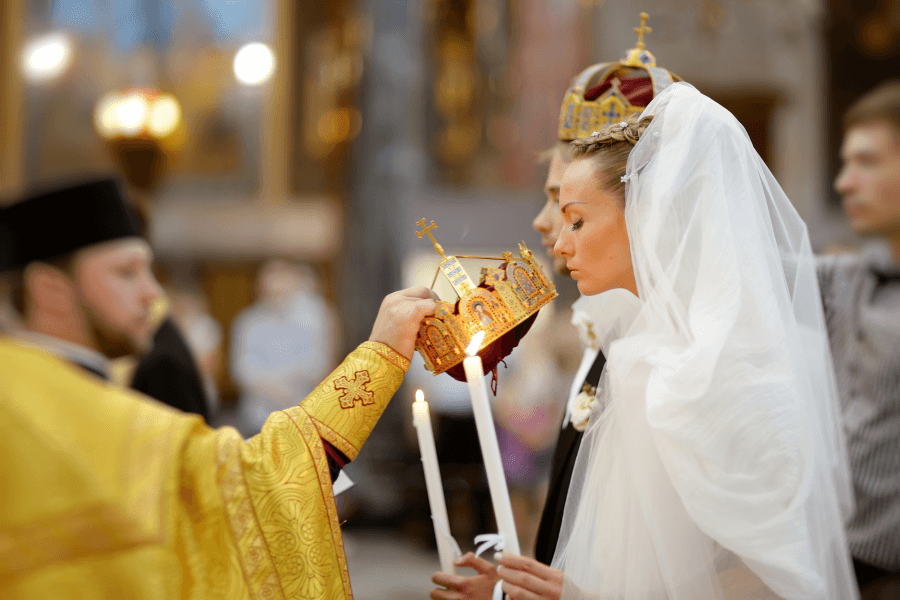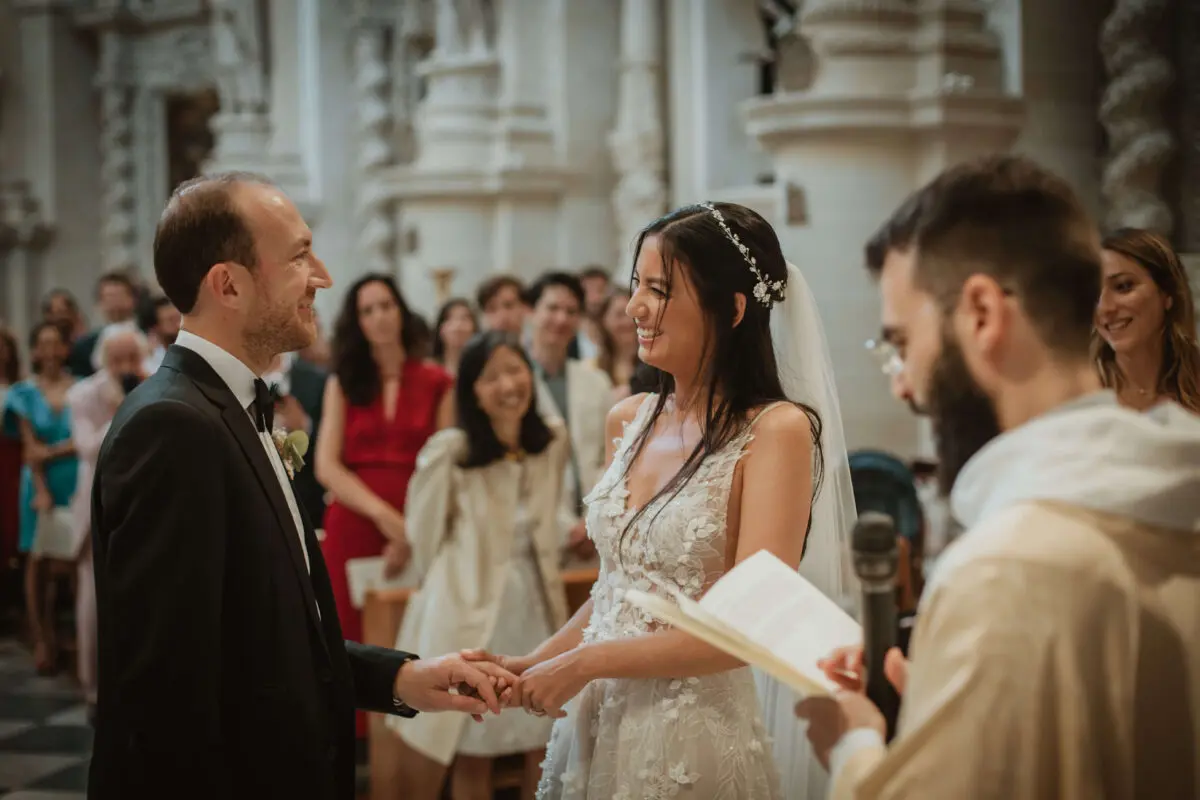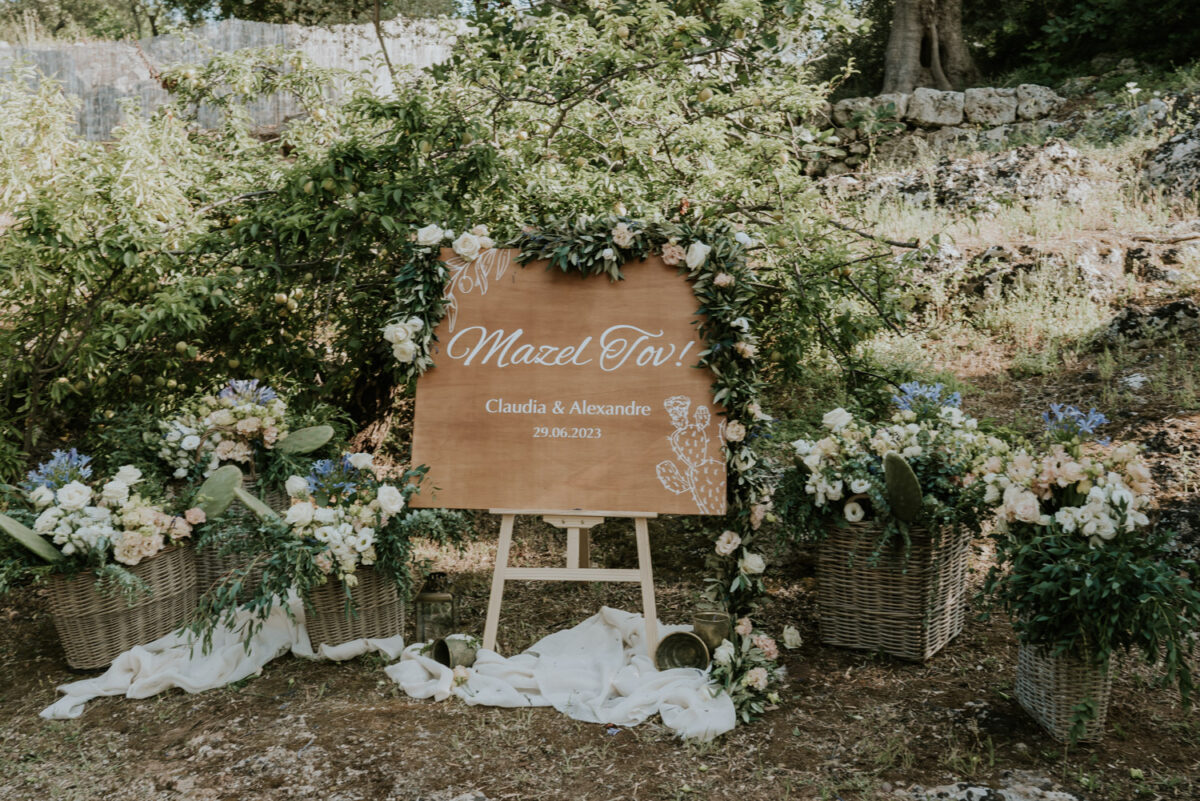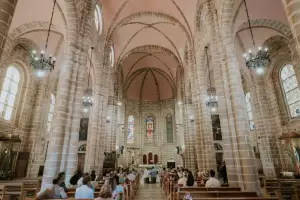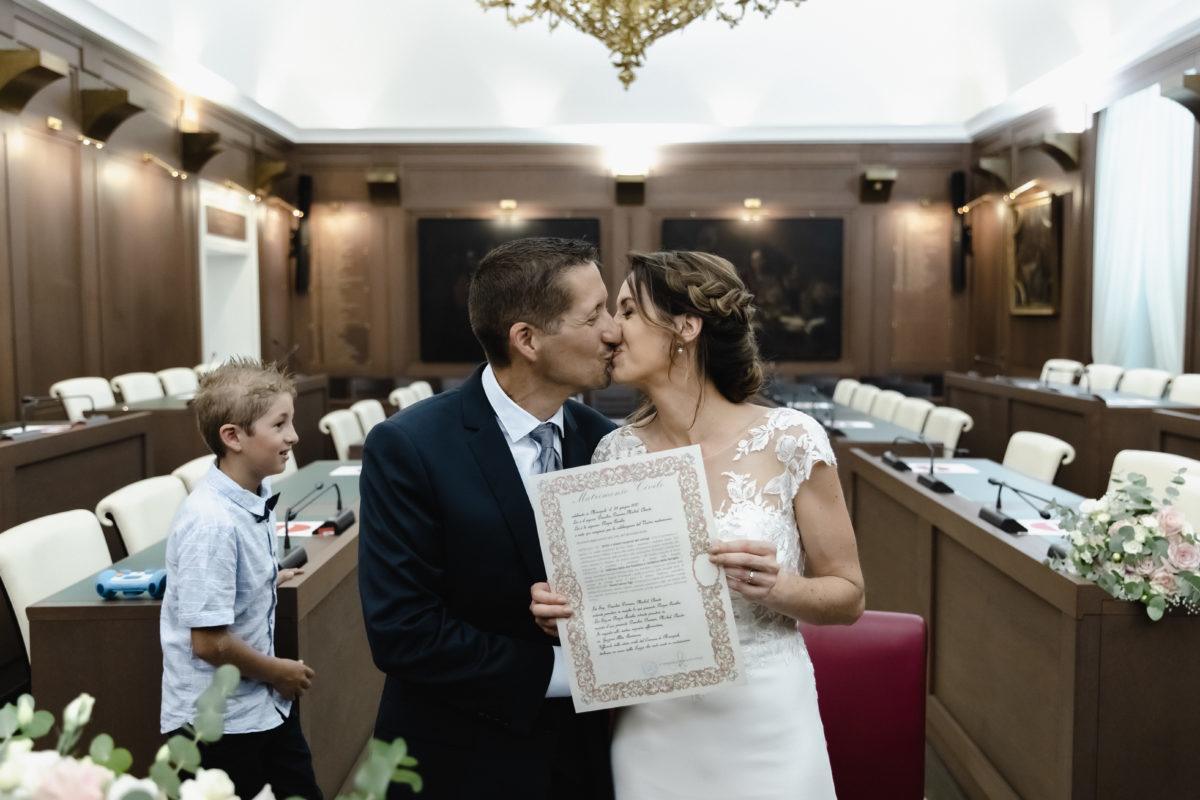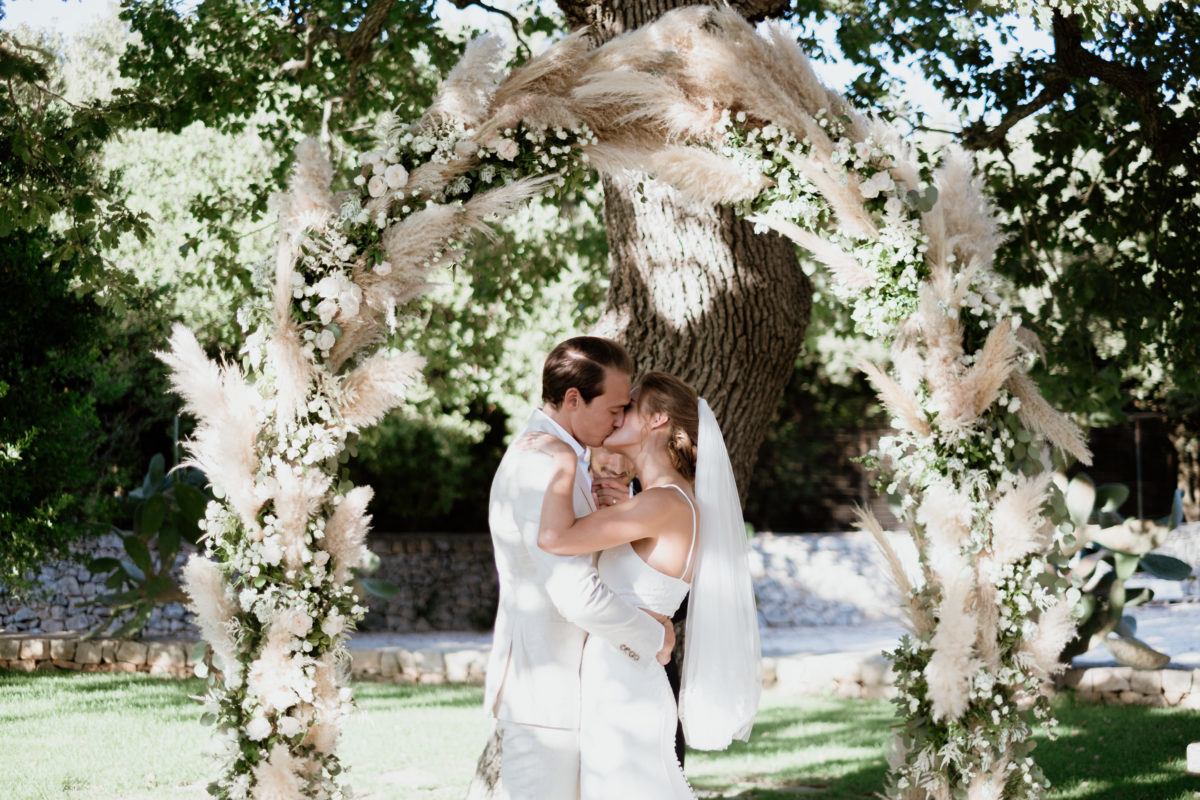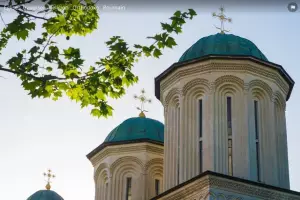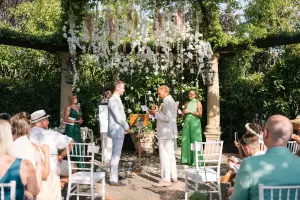AN ORTHODOX WEDDING CEREMONY DESIGNED FOR YOU!
Choose one of the finest wedding settings for this unique and sacred moment. Celebrate your love with God’s blessing at the heart of the magnificent landscapes of Corsica or Italy!
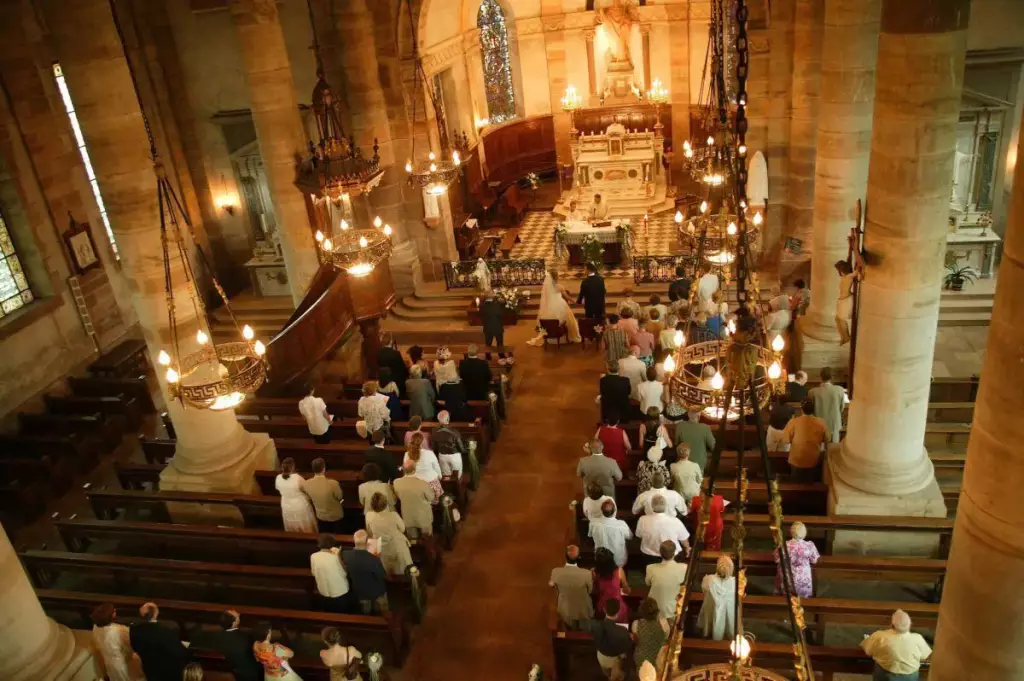
WHAT PREPARATION FOR AN ORTHODOX WEDDING?
The preparations of an orthodox wedding must be done with the priest of the religious parish of the spouses. The Orthodox priest meets the future bride and groom during several interviews to discuss the due process. It is by his side that the couple will decide on the wedding date, according to the religious calendar. The spouses will also have to inform the priest about who will be their best men. They can choose one or two each and they must be baptized. During the preparation of the wedding, the parents of the couple need to acquire and bless an icon. This symbol of wisdom will look after the newlyweds household after the wedding. Our wedding planners’ team will take care of finding an Orthodox church and priest to celebrate your religious wedding in Italy or Corsica. When you and the priest of your home country have completed your preparation, your wedding file will be sent to the priest who will celebrate your orthodox wedding abroad. If the priest doesn’t speak in your language, our team can put at your disposal an interpreter’s services.
HOW DOES THE ORTHODOX CEREMONY UNFOLD?
The particularity of an Orthodox wedding is to celebrate the engagement of the spouses on the wedding day. Thus, the ceremony unfolds in two steps: the engagement service and the Orthodox crowning service. The celebration begins with the mutual consent of the fiancés. The engagement rite is characterized by the blessing of the wedding rings by the priest before he gives them to the bride and groom. One of the best men then comes to proceed to the exchange of the rings. The priest gives a golden ring to the groom and a silver one to the bride. The wedding rings are blessed in the name of the Father, the Son, and the Holy Spirit. This ritual has to be done meticulously so the rings change hands three times between the spouses. Three is a symbolic number that refers to faith, harmony and to the love that unites the couple. Once the engagement service is completed, the wedding can continue with the crowning service. The priest gives an altar candle and a crown to the bride and to the groom. Before they are put on the spouses heads, the crowns are attached with a ribbon to symbolize the couple’s unity. The moment of the crowning embodies the royal sacrament of marriage. The service continues with a reading of passages and the sharing of a cup of wine, symbol of a future life together. The crowning service ends with the nuptial walk of the spouses who must complete three turns of the altar before kissing.
CHOOSE A WEDDING LOCATION FOR AN ORTHODOX WEDDING
A delightful estate on Tuscan hills, a chic restaurant on heavenly Corsican beaches or a joyful meal in the typical trulli of Apulia to organize your wedding reception can be tempting, right? Live a memorable experience in our most beautiful wedding venues in Italy and Corsica to celebrate this special day! For you, our wedding planners unlock the doors of the most private and astonishing places in these dream destinations. Get married before God in an Italian church. These buildings are authentic and charged with history and will welcome you and your guests for a ceremony full of emotions. The masserias of the South of Italy are also perfect places to celebrate a wedding. Most of them are equipped to host all or part of your guests. Their big gardens offer a direct connection with nature.
Our agency takes care of the decoration of your wedding venue so that your special day will stay forever in your memories. The Grecia Salentina is an area of Apulia where Greek culture spread through the dialect and architecture. This unique region thus offers a dream setting for an Orthodox wedding with Greco Italian inspirations. Finally, the majestic Italian castles are the ultimate romantic places where you will find a magic atmosphere to celebrate the best day of your life.
WHAT ARE THE SPECIAL FEATURES OF AN ORTHODOX WEDDING?
First of all, the orthodox wedding is a Christian wedding and it can only be celebrated between two baptized persons. It is however possible to celebrate a mixed religious wedding between an Orthodox and a non-Orthodox Christian. Furthermore, divorced men and women are eligible to an Orthodox wedding which is not allowed in the Catholic confession for example. In that case, a divorce certificate must be communicated by the concerned spouse(s) and the couple must ask for the priest's agreement.
Like other religious ceremonies, the Orthodox wedding has to be preceded by the civil union. For a wedding in Italy, civil and Orthodox unions can be celebrated at the same time thanks to the concordat between the State and the Church. Finally, keep in mind that the choice of the best men is really important in the Orthodox confession as they need to be baptized and they play a key role in the ceremony and in the life of the couple.
RITUALS OF AN ORTHODOX WEDDING CEREMONY
Just like Jewish wedding ceremonies, Orthodox marriages are a set of strictly codified rituals and traditions. Accessories and symbols are at the core of the ceremony and each one of them carries profound meaning. They must be chosen and offered by the parents and wedding witnesses. These accessories will then be treasured in the couple’s home in remembrance of their commitment towards each other.
The crowns are a characteristic of the Orthodox wedding. They are connected with a ribbon that represents the union of the spouses. The style of the crowns depends on the traditions and cultures of the bride and groom. Depending on their country of origin, the materials differ: a crown made of leaves and flowers is used in Greek weddings, while a golden crown is used in Russian weddings. The dragées must as well meet precise criteria: they have to be simple, white - the color of purity - and oval - symbol of fertility. The Orthodox wedding tradition demands that each candy box contains an odd number of dragées to represent the couple’s indivisibility.
WHERE TO BEGIN TO CELEBRATE YOUR ORTHODOX WEDDING IN ITALY?
The organization of an Orthodox wedding in Italy is at your reach! Our team of wedding planners will help you in the preparation of this special moment. From the research of your wedding location to the choice of the church, they will stand by your side all along the process. They will also support you in the completion of administrative steps for your civil wedding. The latter are very simple and similar to most of the procedures in Western countries. However, it is mandatory to obtain the Nulla Osta from the consulate or embassy of your home country to celebrate a civil union in Italy. The advantage of getting married religiously in Italy is to have the choice of the church where you will celebrate your wedding. Most of the buildings being historic monuments, they offer an astonishing architecture to welcome your celebration.
Once your wedding has been celebrated, the last step is to translate the wedding certificate in the registers of your home country. Some Italian city halls directly send it to the consulate or embassy of your country. In that case, you will be able to get your family record book in your home's city hall within a few weeks after your ceremony.

